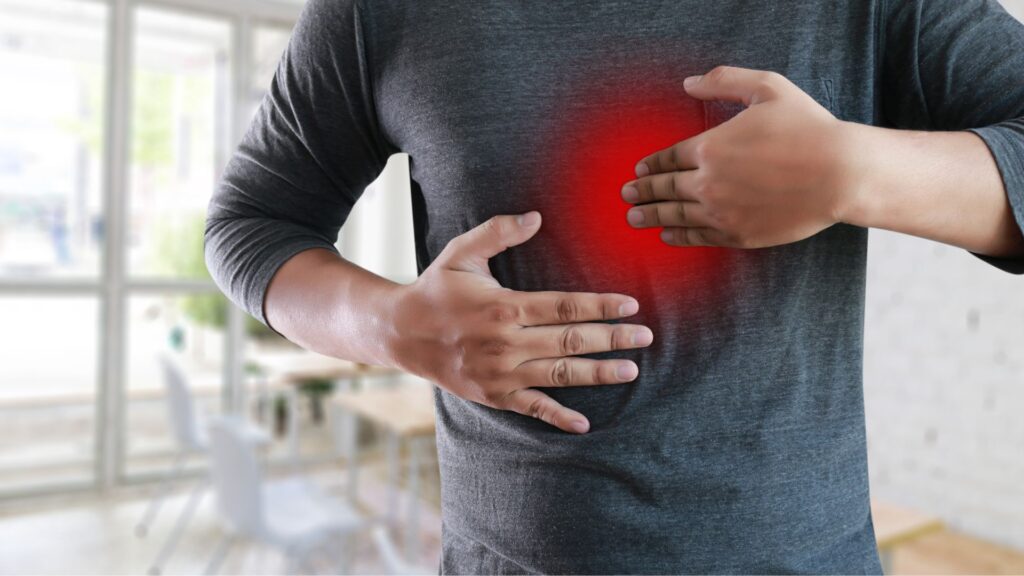Overview
Gastroesophageal reflux disease (GERD) occurs when stomach acid repeatedly flows back into the tube connecting your mouth and stomach (esophagus). This backwash (acid reflux) can irritate the lining of your esophagus.
Many people experience acid reflux from time to time. However, when acid reflux happens repeatedly over time, it can cause GERD.
Most people are able to manage the discomfort of GERD with lifestyle changes and medications. And though it’s uncommon, some may need surgery to ease symptoms.
Symptoms
Typical indications of GERD encompass:
- Heartburn, characterized by a burning sensation in the chest, often occurring after meals and potentially intensifying at night or when reclining.
- Regurgitation of food or sour liquid.
- Upper abdominal or chest discomfort.
- Difficulty swallowing (dysphagia).
- Feeling of a lump in the throat.
For those with nocturnal acid reflux, additional symptoms may include:
- Persistent cough.
- Inflammation of the vocal cords (laryngitis).
- Onset or exacerbation of asthma.
When to see a doctor
If you encounter chest pain, particularly accompanied by shortness of breath, or jaw and arm pain, it is crucial to seek prompt medical attention as these could indicate signs of a heart attack.
Additionally, schedule a consultation with your doctor in the following situations:
- If you undergo severe or recurrent GERD symptoms.
- When you find yourself relying on over-the-counter medications for heartburn more than twice a week.
Causes
The root cause of GERD stems from the recurrent reflux of either acidic or nonacidic substances from the stomach.
During the act of swallowing, a circular muscle band situated at the lower part of the esophagus, known as the lower esophageal sphincter, temporarily relaxes to permit the passage of food and liquid into the stomach. Subsequently, the sphincter contracts again.
In instances where the sphincter fails to relax appropriately or weakens, stomach acid has the potential to regurgitate into the esophagus. This persistent backflow of acid leads to irritation of the esophageal lining, often resulting in inflammation.
Risk factors
Factors that may heighten the likelihood of GERD include:
- Obesity
- Hiatal hernia, characterized by the protrusion of the upper part of the stomach above the diaphragm.
- Pregnancy
- Connective tissue disorders, such as scleroderma
- Delayed stomach emptying
Conditions that can exacerbate acid reflux encompass:
- Smoking
- Consuming large meals or eating late in the evening
- Ingesting specific trigger foods, including those that are fatty or fried
- Drinking certain beverages, such as alcohol or coffee
- Utilizing particular medications, such as aspirin
Complications
Over a prolonged period, persistent inflammation within the esophagus can result in:
Esophagitis: Inflammation of the esophageal tissue occurs when stomach acid breaks down the tissue, leading to inflammation, bleeding, and the potential development of an open sore (ulcer). Esophagitis can induce pain and hinder the act of swallowing.
Esophageal Stricture: Prolonged exposure to stomach acid damages the lower esophagus, prompting the formation of scar tissue. This scar tissue constricts the passage for food, causing difficulties in swallowing.
Barrett Esophagus: Acid-induced damage can bring about alterations in the tissue lining the lower esophagus. These changes are associated with an elevated risk of developing esophageal cancer and are classified as precancerous.



